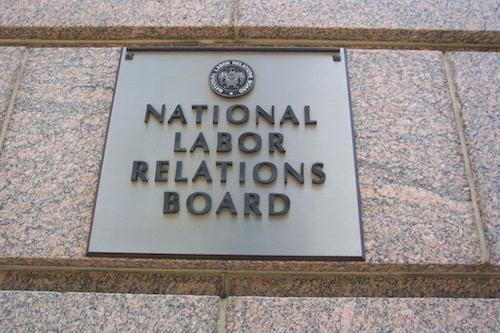NLRB Vacates its Joint Employer Ruling

On February 26, 2018, the National Labor Relations Board (NLRB) vacated its December 14, 2017 decision in Hy-Brand Industrial Contractors, Ltd. And Brandt Construction Co. The December decision overturned the Browning-Ferris case, which greatly expanded the legal liability of franchisors, like McDonald’s.
The Browning-Ferris case changed the definition of joint employer from one who has direct control over employees to one who has direct or indirect control over the employees. This new definition means that companies could be held liable for the labor law violations of their franchisees, even if they have very little to do with the hiring and firing of the workers.
Democrat lawmakers, including Massachusetts Senator Elizabeth Warren, were unhappy with the December ruling that overturned Browning-Ferris and asked whether NLRB member William Emanuel should have recused himself. Prior to joining the Board, Emanuel had worked for Littler Mendelson, the law firm that had represented one of the clients in Browning-Ferris.
NLRB Inspector General David Berry wrote in a February 9th report that:
Because the Hy-Brand deliberation was a continuation of the Browning-Ferris deliberative proceedings and involved the application of the Browning-Ferris facts to the law for the Browning-Ferris parties, Member Emanuel should have been recused from participation in deliberations leading to the decision to overturn Browning-Ferris.
With the decision vacated, the broad Obama-era definition of joint employer stands.
This definition of joint employer hurts workers and small businesses. In fact, the American Action Forum has found that the expanded joint employer definition will result in 1.7 million fewer private sector jobs.
However, there is a solution to this problem. It’s known as the Save the Local Business Act.
This bi-partisan bill was introduced by Representative Bradley Byrne (R-AL) and 29 co-sponsors on July 27, 2017. Rep. Byrne said:
“Federal labor policies should be focused on benefiting workers and helping small businesses grow instead of creating barriers that limit opportunity. Also important, Congress – not unelected federal bureaucrats – should set our nation’s labor policies through statute instead of executive fiat.
“Under this bipartisan legislation, workers, and the businesses they work for, will be given much needed clarity and certainty. I am especially pleased our legislation has earned support from both sides of the aisle, and I am committed to continuing to build momentum as the bill moves through the legislative process.”
The U.S. House of Representatives passed the bill on November 7, 2017.
Now, it is critical for the U.S. Senate to pass this bill to ensure that the definition of joint employer is appropriate.





